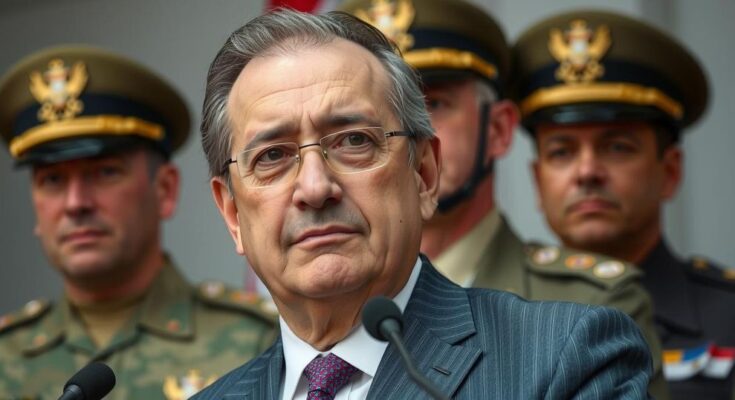Joseph Aoun, the U.S.-backed army chief, has been elected as the new president of Lebanon, marking the end of a years-long political deadlock. The election follows significant efforts by the U.S. and Saudi Arabia to secure support for Aoun, amidst ongoing tensions between pro-Western and pro-Iranian factions in the country.
In a significant political development, the Lebanese parliament has elected Joseph Aoun, the army chief supported by the United States, as the new president of Lebanon, thereby concluding a prolonged political deadlock and a presidential vacuum. Joseph Aoun secured his presidency after two rounds of voting, largely attributed to the concerted efforts of Saudi Arabia and the United States to garner support for his candidacy.
Lebanon has been without a president since the conclusion of former President Michel Aoun’s tenure in October 2022. Mr. Aoun, who is unrelated to Joseph Aoun, was backed by Hezbollah, a group aligned with Iranian interests. Over the past two years, attempts to appoint a new president were unsuccessful, intensifying existing tensions between Lebanon’s pro-Western factions and those supporting Iranian influence.
Before this latest voting session, parliamentary discussions had failed to produce a president on twelve separate occasions. Notably, a U.S.-brokered ceasefire agreement, which concluded a recent conflict between Hezbollah and Israel, is believed to have facilitated advancements towards this presidential election. Hezbollah suffered considerable setbacks from Israeli military actions, which, in turn, coincided with the decline of Syrian President Bashar al-Assad, who had previously allowed Hezbollah to transport arms from Iran through Iraq.
The Lebanese army, although not an active participant in the conflict with Israel, plays an essential role in enforcing the ceasefire, which mandates the army’s deployment in areas of southern Lebanon traditionally controlled by Hezbollah. The ceasefire also demands the withdrawal of Israeli forces from Lebanese territory. In accordance with the confessional power-sharing system, the Lebanese presidency is typically assumed by a Maronite Christian.
The political environment in Lebanon has been characterized by a complex interplay of sectarian interests and external influences, particularly from Western nations and Iran. The country has experienced a presidential vacuum since October 2022 when Michel Aoun’s term ended. His administration, supported by Hezbollah, signified the pro-Iranian faction of Lebanese politics. The pro-Western bloc, bolstered by U.S. and Saudi support, has sought to counterbalance Iranian influence in the country, leading to a tense and fragmented political landscape that culminated in numerous unsuccessful presidential elections. The recent U.S.-brokered ceasefire with Israel has shifted some dynamics, leading to the successful election of a pro-Western candidate, Joseph Aoun.
The election of Joseph Aoun as Lebanon’s president marks a crucial turning point in the nation’s political landscape, effectively ending a lengthy stalemate and establishing a leadership set against the backdrop of ongoing regional tensions. With backing from the United States and Saudi Arabia, Mr. Aoun’s ascension indicates a potential shift towards pro-Western governance in Lebanon, amid challenges posed by Iran-aligned factions. This development underscores the importance of international influence in Lebanese politics and the delicate balance of power in the region.
Original Source: www.cnn.com




